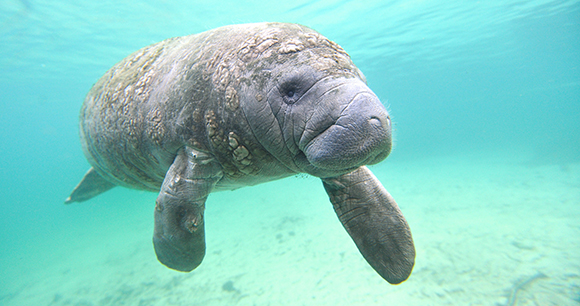
Washington, DC—President Joe Biden has signed into law the annual National Defense Authorization Act (NDAA), which includes a number of conservation provisions designed to strengthen the United States’ ability to protect marine species and ecosystems. This legislation passed in the Senate 83-11 earlier this month.
While the NDAA’s primary focus is on national defense ($847 billion), the US Department of Defense operates across large ocean areas, thus necessitating coordinated protection efforts among different agencies. The Animal Welfare Institute (AWI) is pleased that this law addresses pressing ocean and coastal issues, coordinates data collection efforts, and invests in innovative technologies to prevent vessel strikes with marine mammals, among other positive measures. The package was championed by Reps. Rick Larsen (D-WA) and Raúl Grijalva (D-AZ) in the House, with critical support from Rep. Adam Smith (D-WA), chairman of the House Armed Services Committee, and Sen. Maria Cantwell (D-WA), chair of the Senate Commerce, Science, and Transportation Committee.
The provisions include:
- Improving the national marine mammal stranding-and-response program to help sick and injured marine mammals, including manatees, dolphins, orcas, sea lions, and sea otters.
- Establishing multiple grant programs to reduce ocean noise, pollution, and vessel traffic impacting marine mammals, including the critically endangered North Atlantic right whale. The package also includes investments in innovative technologies, such as a near-real-time monitoring program aimed at protecting endangered North Atlantic right whales, in addition to quiet and carbon-free vessels.
- Banning the domestic sale of shark fins. Sharks are vital to ocean health, yet tens of millions worldwide are killed every year for their fins, which are used in shark fin soup. The decimation of these apex predators not only raises serious welfare concerns, but also harms the marine environment, as sharks serve an important role of maintaining ecological balance in oceans.
- Investing in coral reef conservation, management, and stewardship, in addition to reauthorizing and amending the Coral Reef Conservation Act of 2000.
- Strengthening international fisheries management to combat human trafficking. Illegal, unreported, and unregulated fishing is one of the greatest threats to ocean health and is a significant cause of overfishing. These fishing operations often rely on forced labor and engage in human trafficking.
“This is one of the most comprehensive and significant legislative packages for marine life in recent memory, and AWI applauds the bipartisan way in which Congress addressed a broad spectrum of ocean conservation issues through its annual defense spending bill,” said Susan Millward, AWI’s executive director. “To see so many of these measures come to fruition after years of advocacy is truly inspiring.”
Marjorie Fishman, Animal Welfare Institute
[email protected], (202) 446-2128
The Animal Welfare Institute (awionline.org) is a nonprofit charitable organization founded in 1951 and dedicated to reducing animal suffering caused by people. AWI engages policymakers, scientists, industry, and the public to achieve better treatment of animals everywhere—in the laboratory, on the farm, in commerce, at home, and in the wild. Follow us on Facebook, Twitter, and Instagram for updates and other important animal protection news.